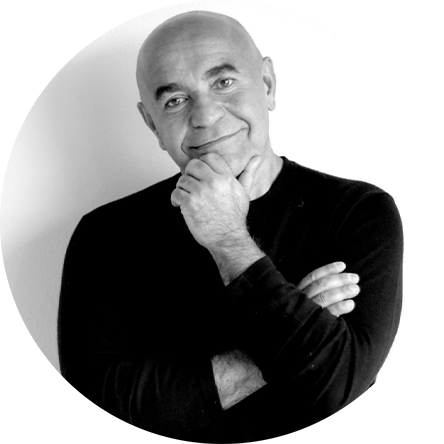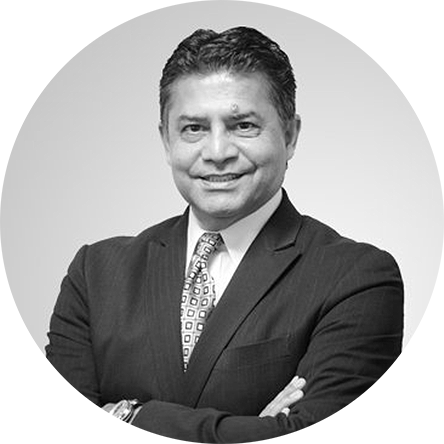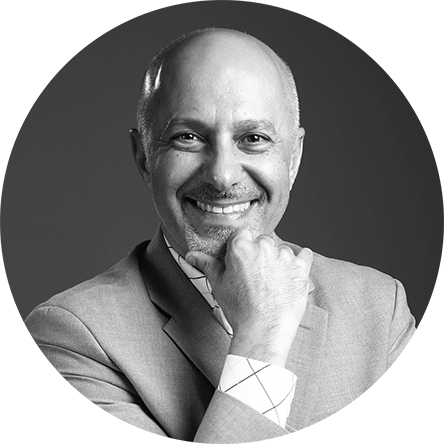Takeaways from the Impactful Innovation Conference 2022 Keynote Speakers
By David Hewitt
On November 7-8th Bridgewest Ventures New Zealand hosted our first annual Impactful Innovation Conference in Wellington, New Zealand. The event provided an opportunity to for everyone in the New Zealand start-up ecosystem to network, learn more about emerging trends in the technology and biotechnology industries, and have the opportunity to learn what it takes to build a billion-dollar business from people who have done it before.
The event featured six keynote speakers all of whom are leaders in their respective fields, and who have built and run cutting-edge businesses that generated billions of dollars in shareholder value. In the post below we recap the biggest takeaways from each speaker’s keynote address and hope it can provide helpful insight and direction to Kiwi entrepreneurs and new founders.
Select a speaker to jump to their highlights
Kamran Elahian
Kamran is a highly successful entrepreneur, investor, and philanthropist. Kamran has founded or co-founded ten separate high-tech companies over his career, three of which went on to become unicorns. After a successful career focused on entrepreneurship, Kamran founded and ran Global Catalyst Partners, a global venture capital firm focused on the technology sector. Kamran is also a highly active philanthropist; among many endeavors Kamran focuses his efforts on bringing technology and opportunity to underprivileged regions of the world.
According to Kamran we are in the age of the innovation economy where ideas are “a dime a dozen” and implementation and execution of ideas is essential to driving value. One of the keys to successfully executing ideas is to leverage the latest tools and technology; today those tools are digital and algorithmic (artificial intelligence).
The toolsets available to innovators and entrepreneurs evolve rapidly over time, so it’s very important for business leaders to stay on top of the latest technology trends to give themselves a competitive advantage in the market. Another key to success is getting feedback from customers at every stage of business development. Even in the early stage of development, entrepreneurs should be listening to customers (and potential customers) and developing solutions that fit what customers want and need. Specific to New Zealand, Kamran sees a significant amount of opportunity. He noted that leadership in innovation has seen a significant amount of diffusion over the past decade and that over 50% of unicorn companies today were founded outside of Silicon Valley.
Dr Laurence Cooper
Dr Cooper is a pioneer of next generation immunotherapies for cancer including cell and gene therapies. Dr Cooper is a clinical oncologist and led the Pediatric Bone Marrow Transplant department at the award-winning MD Anderson Cancer Center in Houston, Texas. Over his career he has developed over 100 patents and was an early innovator of the area of cell therapy, which is one of today’s most promising breakthroughs in cancer treatment. After a highly successful career as a practicing doctor, Laurence became a highly successful life science entrepreneur, serving as CEO of publicly traded Alaunous Oncology and is currently an active board member for several promising oncology focused start-ups.
Dr Cooper educated the audience on CAR T-cell therapy, which is a game changing treatment for patients with late-stage blood cancers and hopefully solid tumors in the future. CAR-T therapy leverages a patient’s own immune system and transforms their own white blood cells into cancer killing cells. New Zealand’s own Malaghan Institute is one of the leading research institutions in the field of CAR T-cell therapy. One of the biggest bottlenecks in making this treatment available to more patients is the high cost of manufacturing personalized treatments, which can cost NZ $300-500K per patient. Homegrown New Zealand company BioOra (disclosure: BVNZ portfolio company) is at the forefront of solving this problem by automating the manufacturing process of cell therapy.
New Zealand is in a prime position to re-invent the infrastructure around CAR-T treatment and in the process can become a medical tourism destination for the Asia-Pacific region.
This has the potential to be a multi-billion-dollar opportunity for NZ’s healthcare ecosystem and tourism industry.
Sabeen Shaikh
Sabeen Shaikh is an international healthcare business executive and consultant with nearly 20 years of corporate and start-up experience across the US, Australia, and Asia-Pacific regions. She works with governments, medical device companies, venture capital, private equity funds, and start-ups on bringing innovative medical devices and healthcare solutions to market.
Sabeen’s presentation focused on the on the challenges of achieving success in the life science industry. She provided several suggestions to member of the NZ life science ecosystem, which will enable participants to scale and compete on a global basis.
First, Sabeen thinks that the company creation process needs to be more streamlined; public and government institutions need to make it easier for entrepreneurs to draw IP out of research settings and the NZ capital markets need to provide more capital towards these opportunities. The New Zealand government can play a significant role here through initiatives that make it financially beneficial to build life sciences companies in NZ relative to other countries.
Second, the New Zealand life science ecosystem needs to focus on a few areas of expertise and become the best in the world at a few capabilities.
Third, participants need to globally ambitious and leverage partnerships with international players to help them scale beyond New Zealand in an efficient manner.
Cyrus Mirsaidi
Cyrus Mirsaidi is a highly accomplished life science business executive that has built two billion-dollar businesses from the ground up. Cyrus was the founder and Chairman of Molecular Response, which he sold to Crown Biosciences. After Molecular Response, Cyrus went on to found BioDuro-Sundia, which he grew from a start-up to a 2,500-employee global business that was recently sold to Advent Partners International.
Cyrus’ talk was appropriately titled “building a global billion-dollar business from the ground up.”
One of the first keys to building a successful business is precisely knowing the market you play in; it is critical to be a top three player in that market. Second is to define your businesses’ core values, reinforce those core values within your company, and demonstrate those values to everyone outside of the company.
For Cyrus, accountability has always been a crucial core value and he reinforced it throughout his companies by giving every business department their own P&L statement that they were accountable for. Third, flexibility is important; businesses need to make changes, evolve, and adapt to changes in the market. Fourth, getting feedback on products and services from customers is critical, it is essential that products and services are tailored for the customer’s needs and desires.
Honorable Doctor Ayesha Verrall
Honorable Doctor Ayesha Verrall is New Zealand’s Minister for Research, Science, and Innovation. Prior to taking political office, Dr. Verrall was an infectious-diseases physician and a professor of microbiology at the University of Otago.
Dr. Verrall outlined a wide-ranging initiative that the New Zealand government provides to support the commercialization of scientific research, particularly in the life science industry.
For research to have an impact, it needs to be applied to the real world through commercialization. Commercialization helps turn research into products that can help people’s lives and produce innovative companies with well paid jobs.
As a medical doctor, Dr. Verrall is particularly excited to see Bridgewest Ventures building the various companies needed to provide end-to-end CAR T-cell therapy treatment in New Zealand.
Behrooz Abdi
Behrooz Abdi is a highly accomplished technology executive. After a very successful career at Motorola Semiconductor and Qualcomm, Behrooz went on to lead RMI Corporation, which he successfully sold to NetLogic Microsystems. After that Behrooz became CEO of InvenSense, a publicly traded company, which he successfully sold to TDK. Behrooz is an investor and an active board member for many start-ups and publicly traded companies.
Behrooz’s presentation was on global technology trends. The biggest mega trends that Behrooz sees in the technology sector are quantum computing, machine-to-machine connectivity, artificial intelligence fused with edge computing, and solid-state batteries. Behrooz thinks that artificial intelligence will become ubiquitous and will be a basic element in all technology products, intelligence will be injected into everything through AI.
The next big trend within AI will be sensors + AI + software, enabling ambient computing where every electronic device is connected to one another and creating new and profound experiences that have yet to be imagined.
As has been the trend for over a decade, Behrooz thinks that value will continue to accrue to the software layer of solutions (versus the hardware layer) and sees the leading semiconductor and hardware companies increasingly focusing their efforts on software.
Interested in Impactful Innovation?
If you are interested in attending Impactful Innovation 2023 click below and register your interest to stay informed about the latest speaker and ticketing announcements.












